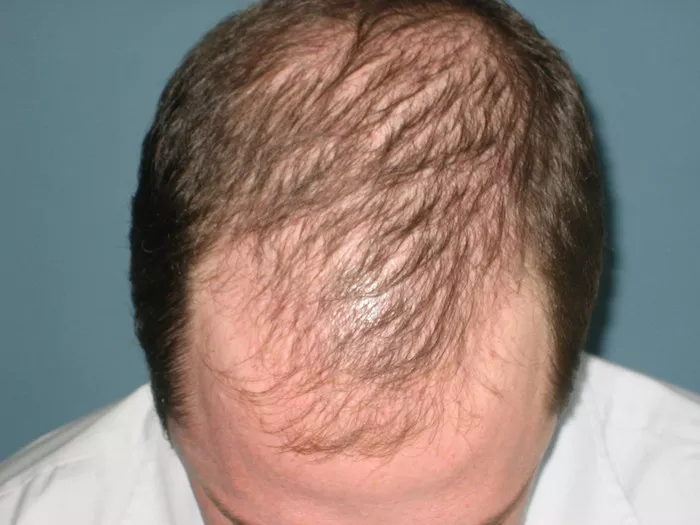Hair loss can be a distressing experience, affecting individuals of all ages and genders. Understanding the different types of abnormal hair loss is essential in identifying the underlying causes and seeking appropriate treatments. In this article, we will explore the most common types of abnormal hair loss, including androgenetic alopecia, alopecia areata, telogen effluvium, and other less frequent causes. By gaining insight into these conditions, individuals can better comprehend the complexities of hair loss and discover strategies to nurture drifting hair for softness and silkiness.
The Complexity of Hair Loss
Hair loss is a complex condition with various underlying causes. While some forms of hair loss are considered normal due to the natural hair growth cycle, abnormal hair loss occurs when the shedding process is disrupted. Understanding the different types of abnormal hair loss can help individuals identify patterns and seek appropriate medical attention.
Androgenetic Alopecia: The Most Common Type of Hair Loss
Androgenetic alopecia, also known as pattern hair loss, is the most common form of hair loss. It affects both men and women, although the patterns of hair loss differ between genders. Androgenetic alopecia is primarily caused by genetic and hormonal factors, leading to gradual hair thinning and a receding hairline in men, and generalized thinning in women.
Alopecia Areata: Patchy Hair Loss and Autoimmune Connection
Alopecia areata is an autoimmune disorder characterized by patchy hair loss on the scalp, eyebrows, or other areas of the body. It occurs when the immune system mistakenly attacks the hair follicles, resulting in sudden hair loss. The exact cause of alopecia areata is not fully understood, but genetic and environmental factors are believed to contribute to its development.
Telogen Effluvium: Temporary Hair Shedding
Telogen effluvium is a condition characterized by excessive hair shedding due to disruptions in the hair growth cycle. It can be triggered by various factors such as physical or emotional stress, hormonal changes, nutritional deficiencies, medications, or underlying medical conditions. Telogen effluvium often resolves on its own once the underlying cause is addressed.
Other Types of Abnormal Hair Loss
Apart from androgenetic alopecia, alopecia areata, and telogen effluvium, there are several other less common types of abnormal hair loss. These include traction alopecia (caused by tight hairstyles or hair pulling), scarring alopecia (resulting from inflammation or trauma to the hair follicles), and anagen effluvium (often associated with chemotherapy or radiation therapy).
How do I know if my hair loss is normal?
Here are some factors to consider when assessing if your hair loss is normal:
Amount of Hair Loss:
Pay attention to the amount of hair you are losing. If you notice significant clumps of hair falling out or excessive shedding that leaves noticeable thinning areas on your scalp, it may be a sign of abnormal hair loss.
Pattern of Hair Loss:
Observe the pattern of hair loss. Certain patterns, such as receding hairline in men or generalized thinning in women, can be indicative of common genetic hair loss (androgenetic alopecia). Sudden or patchy hair loss, on the other hand, may be a sign of an underlying condition or autoimmune disorder.
Age and Life Stage:
Hair loss patterns can vary depending on age and life stage. It is normal to experience some hair thinning or shedding as part of the natural aging process. Additionally, women may experience temporary hair loss after giving birth or during menopause, which is usually temporary and resolves on its own.
Duration of Hair Loss:
Consider the duration of hair loss. If you notice hair shedding for a short period, it could be a normal part of the hair growth cycle. However, if the shedding persists or worsens over time, it may be a cause for concern.
Overall Health and Lifestyle Factors:
Your overall health and lifestyle can contribute to hair loss. Factors such as stress, nutritional deficiencies, hormonal changes, medication, or underlying medical conditions can impact the hair growth cycle. If you suspect any of these factors may be influencing your hair loss, it is advisable to consult with a healthcare professional.
If you are unsure whether your hair loss is normal, it is best to consult with a dermatologist or a healthcare professional specializing in hair and scalp disorders. They can evaluate your specific situation, conduct a thorough examination, and provide a proper diagnosis. Remember, early detection and intervention can often lead to more effective treatments and better outcomes.
Nurturing Drifting Hair for Softness and Silkiness
Regardless of the type of hair loss experienced, nurturing drifting hair is essential for promoting softness and silkiness. It is important to maintain a healthy scalp and hair care routine. This includes gentle cleansing, conditioning with suitable products, avoiding excessive heat styling or harsh chemicals, and protecting the hair from environmental damage. Additionally, maintaining a balanced diet, staying hydrated, managing stress, and seeking professional guidance can contribute to overall hair health.
Conclusion:
Understanding the most common types of abnormal hair loss is crucial in identifying the underlying causes and seeking appropriate treatments. Androgenetic alopecia, alopecia areata, telogen effluvium, and other less frequent causes all have distinct patterns and triggers. By adopting nurturing hair care practices and addressing the specific condition with medical guidance, individuals can strive to nurture drifting hair and achieve softness and silkiness. Remember, each case of hair loss is unique, and seeking professional advice is essential for accurate diagnosis and tailored treatment plans.


